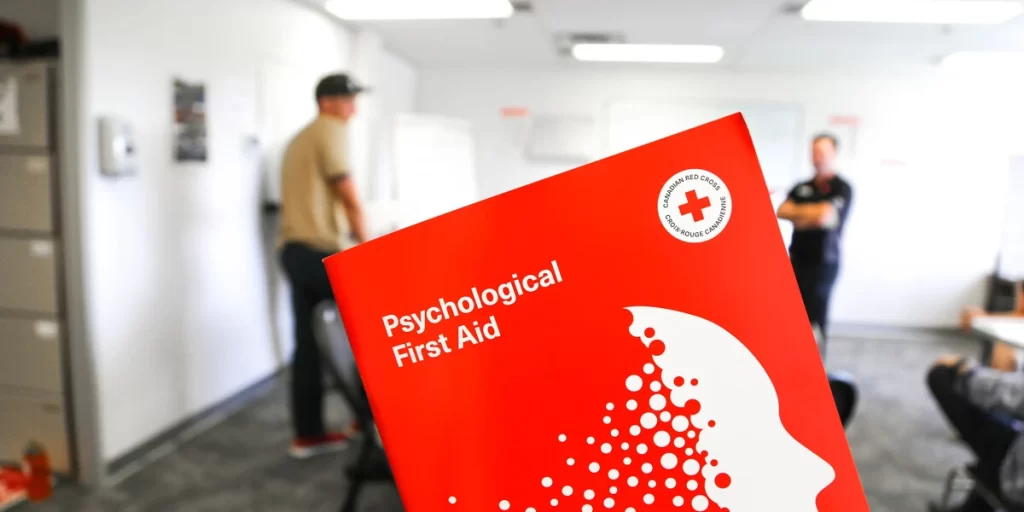
Duration: 12 hours in-class OR 45-90 minutes online learning and 7 hours in-class
This course equips learners in developing a personal understanding of the effects of stress, loss, trauma and grief on others, with emphasis on self-care and personal protection. Learners will be introduced to the Red Cross Look, Listen, Link, Live model – a resiliency-building approach to emotional, psychological, and social wellbeing that teaches learners how to support themselves and others to cope with the effects of various types of stress. The course uses primarily case-based learning and includes the latest evidence from the international community.
Case-based learning and discussion will be tailored to the audience and include the following content:
Psychological First Aid Workbook (print)
Look, Listen, Link, Live cards
Psychological First Aid–Self-Care online course (required for blended option)
Psychological First Aid–Caring for Others online course (optional)
PFA aims to reduce the impact of traumatic events (disaster/emergency) by exploring what stress looks like within ourselves and others. | MHFA offers initial |
PFA “reflects the emerging science and international consensus on how to support people in the immediate aftermath of extremely stressful events” (WHO Guide for field workers) | MHFA educates people about how to identify, understand and help a person who may be developing a mental health issue. |
PFA educates non-mental health professionals (including first responders and volunteers) on how to help minimize psychological distress in disaster or crisis impacted individuals/families. | MHFA aims to teach participants how to recognize symptoms of mental health problems. |
PFA addresses, through practical care and support, reactions that are interfering with normal coping, in the immediate aftermath of the traumatic event. | MHFA is understanding the indicators of mental health conditions that require professional intervention. PFA is the first building block, followed by MHFA. |
PFA is for everyone. It is a daily aid to facing the stresses of life, and helps participants gain an understanding of how to recognize when someone else is experiencing distress and how to offer help. | MHFA is for people wishing to learn more about actual mental health conditions and how to offer help. |
Within disasters PFA is a proactive program for everyone to promote resiliency and reduce the impact of loss and trauma. However, it is not just for disasters, but gives knowledge and skills for people to live life through understanding stressors and traumas that impact them. Evidence demonstrates most people impacted by disasters and emergencies recover well with information, support, and referrals. | MHFA offers initial support until appropriate professional help is received or until the mental health crisis is resolved. |

Canadian Red Cross Training Partner and an authorized Heart & Stroke Training Centre , we are equipped to provide exceptional first aid certification training services, as well as ACLS, PALS, and PEARS training courses to meet your unique needs. We specialize in delivering private group training sessions either at our facility or yours, and can provide customized kits containing a variety of first aid supplies. Additionally, our workplace safety solutions are approved by the WSIB, ensuring you receive top-notch training and products to keep your team safe.